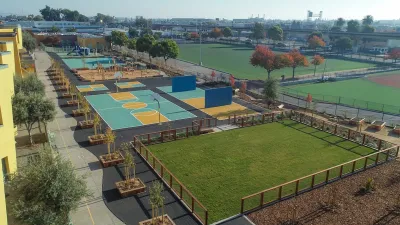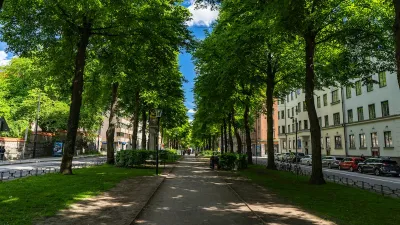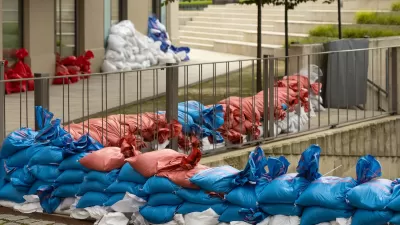Colorado law prohibits the collection of rainwater, but urban farmers, environmentally-conscious homeowners, and even developers are catching on to its benefits and building momentum for the legalization of rainwater harvesting.
"Collected rainwater is generally considered 'gray water,' or water that is not reliably pure enough to drink but can be used to water yards, flush toilets and power heaters. In some states, developers try to include a network of cisterns and catchment pools in every subdivision, but in others, those who catch the rain tend to do so covertly.
In Colorado, rights to bodies of water are held by entities who get preference based on the dates of their claims. Like many other Western states, Colorado has more claims than available water, and even those who hold rights dating back to the late 19th century sometimes find they do not get all of the water they should.
'If I decide to [take rainwater] in 2009, somewhere, maybe 100 miles downstream, there's a water right that outdates me by 100 years' that's losing water, said Kevin Rein, assistant state engineer."
FULL STORY: Who owns Colorado's rainwater?

Trump Administration Could Effectively End Housing Voucher Program
Federal officials are eyeing major cuts to the Section 8 program that helps millions of low-income households pay rent.

Planetizen Federal Action Tracker
A weekly monitor of how Trump’s orders and actions are impacting planners and planning in America.

Ken Jennings Launches Transit Web Series
The Jeopardy champ wants you to ride public transit.

Crime Continues to Drop on Philly, San Francisco Transit Systems
SEPTA and BART both saw significant declines in violent crime in the first quarter of 2025.

How South LA Green Spaces Power Community Health and Hope
Green spaces like South L.A. Wetlands Park are helping South Los Angeles residents promote healthy lifestyles, build community, and advocate for improvements that reflect local needs in historically underserved neighborhoods.

Sacramento Plans ‘Quick-Build’ Road Safety Projects
The city wants to accelerate small-scale safety improvements that use low-cost equipment to make an impact at dangerous intersections.
Urban Design for Planners 1: Software Tools
This six-course series explores essential urban design concepts using open source software and equips planners with the tools they need to participate fully in the urban design process.
Planning for Universal Design
Learn the tools for implementing Universal Design in planning regulations.
Heyer Gruel & Associates PA
Ada County Highway District
Institute for Housing and Urban Development Studies (IHS)
City of Grandview
Harvard GSD Executive Education
Toledo-Lucas County Plan Commissions
Salt Lake City
NYU Wagner Graduate School of Public Service





























